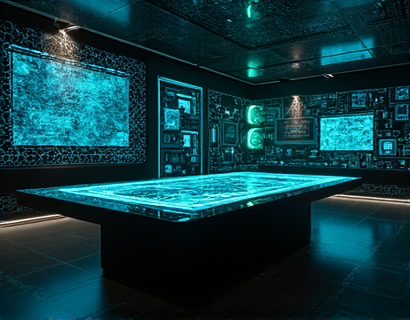Ancient Wisdom for Modern Times: Exploring Historical Insights and Cultural Heritage
The journey through time to uncover the wisdom and cultural treasures of ancient civilizations is both enlightening and profoundly relevant to our contemporary world. This comprehensive guide aims to bridge the gap between historical insights and modern understanding, offering a unique perspective for history enthusiasts and cultural heritage seekers. By delving into the rich tapestry of ancient knowledge, we can gain valuable lessons that resonate with our current societal challenges and personal growth.
Ancient civilizations, from the Mesopotamian empires to the Indus Valley and the great cultures of Egypt, Greece, and China, left behind a wealth of wisdom that continues to influence our lives today. These societies developed sophisticated systems of governance, philosophy, art, and science that provide timeless insights. By exploring these historical insights, we can better understand the roots of modern thought and practice, and apply these lessons to navigate the complexities of the present and future.
Philosophical Teachings of Ancient Greece
The philosophical traditions of ancient Greece remain a cornerstone of Western thought. Figures such as Socrates, Plato, and Aristotle explored fundamental questions about existence, ethics, and knowledge. Socrates' method of questioning, known as the Socratic method, encourages critical thinking and self-examination, principles that are still vital in education and personal development today. Plato's theory of forms suggests that the physical world is a shadow of a higher reality, a concept that has influenced metaphysics and idealism. Aristotle's empirical approach to science and his works on logic, ethics, and politics continue to shape modern philosophy and science.
These ancient Greek philosophers emphasized the importance of reason, virtue, and the pursuit of knowledge. Their teachings remind us of the value of critical thinking and the pursuit of wisdom in our daily lives. In a world often dominated by superficiality and instant gratification, the Greek emphasis on deep reflection and ethical living offers a counterbalance, encouraging us to seek meaning and purpose beyond material success.
Eastern Wisdom: Insights from India and China
While Western philosophy provides valuable insights, the wisdom of Eastern cultures, particularly India and China, offers a different but equally profound perspective. In India, the ancient texts of the Vedas, Upanishads, and the Bhagavad Gita explore themes of spirituality, duty, and the nature of reality. The concept of dharma, or righteous duty, emphasizes the importance of living in harmony with one's purpose and the greater good. Yoga and meditation, rooted in these texts, promote physical, mental, and spiritual well-being, practices that have gained widespread popularity in the modern world.
Chinese philosophy, exemplified by Confucius and Laozi, focuses on social harmony, ethical conduct, and the balance of opposites. Confucianism stresses the importance of relationships, education, and moral virtue, while Taoism advocates for living in accordance with the natural flow of the universe. These teachings offer practical guidance for personal and societal harmony, emphasizing the interconnectedness of all things and the importance of balance and moderation.
The Role of Mythology and Legend
Mythology and legend from various cultures provide rich narratives that convey moral lessons and cultural values. Greek myths, for instance, are not just stories but allegories that explore human nature, divine intervention, and the consequences of actions. The tale of Icarus, who flew too close to the sun, serves as a cautionary story about hubris and the dangers of overambition. Similarly, the Egyptian myth of Osiris and Isis illustrates themes of death, resurrection, and the cyclical nature of life, offering insights into the human experience of loss and renewal.
These myths and legends serve as a collective memory, preserving the wisdom and values of ancient societies. They continue to influence literature, art, and popular culture, providing a timeless framework for understanding human behavior and societal norms. By studying these narratives, we can gain a deeper appreciation of the cultural heritage that shapes our world.
Architectural Marvels and Engineering Innovations
The architectural and engineering achievements of ancient civilizations are testaments to human ingenuity and creativity. The pyramids of Egypt, with their precise alignment and massive scale, demonstrate advanced knowledge of mathematics and astronomy. The Parthenon in Athens, a masterpiece of Doric architecture, embodies the ideals of harmony and proportion. In India, the intricate carvings and grand structures of the Taj Mahal and the temples of Khajuraho showcase the artistic and engineering prowess of their time.
These ancient structures not only served practical and religious functions but also symbolized the power and sophistication of the societies that built them. Today, they stand as enduring monuments to human achievement, inspiring modern architects and engineers. The principles of sustainability and harmony with the environment evident in ancient designs offer valuable lessons for contemporary building practices, emphasizing the importance of ecological balance and resource efficiency.
Medical Knowledge and Healing Practices
The ancient world made significant contributions to medical knowledge and healing practices. In ancient Egypt, the Ebers Papyrus, one of the oldest medical texts, details treatments for various ailments, including surgical procedures and herbal remedies. The Greeks, particularly Hippocrates, laid the foundations of modern medicine with their emphasis on observation, diagnosis, and ethical conduct. Hippocratic medicine stressed the importance of the natural healing process and the balance of bodily humors, principles that influenced medical practice for centuries.
Traditional Chinese medicine, with its holistic approach, integrates herbal remedies, acupuncture, and massage to promote health and treat diseases. The concept of qi, or life energy, underscores the interconnectedness of physical, emotional, and spiritual well-being. These ancient medical systems offer complementary approaches to modern healthcare, highlighting the importance of preventive care and holistic wellness.
Art and Aesthetics
The art and aesthetics of ancient civilizations reflect their cultural values and spiritual beliefs. Egyptian art, with its stylized and symbolic representations, conveys religious and mythological themes. The use of hieroglyphs and the precise proportions in sculptures and paintings demonstrate a deep understanding of visual communication and artistic technique. Greek art, particularly in sculpture and pottery, celebrated the human form and idealized beauty, influencing Western art for centuries.
Indian and Chinese art, with their intricate details and symbolic motifs, express spiritual and philosophical concepts. The cave temples of Ajanta and Ellora in India, adorned with vibrant frescoes and sculptures, depict scenes from Buddhist mythology and daily life. Chinese porcelain and brush paintings, known for their elegance and precision, reflect the cultural emphasis on harmony and balance. These artistic traditions continue to inspire contemporary artists and designers, offering a rich source of aesthetic inspiration.
Lessons for Modern Times
The wisdom of ancient civilizations offers numerous lessons that are highly relevant to modern times. The emphasis on critical thinking, ethical living, and the pursuit of knowledge remains crucial in a world facing complex challenges. The philosophical and spiritual teachings of the East promote mindfulness, balance, and harmony, providing valuable tools for personal and societal well-being.
The architectural and engineering innovations of the past inspire sustainable and aesthetically pleasing designs, while ancient medical knowledge complements modern healthcare with holistic approaches. The rich artistic heritage of these civilizations enriches our cultural landscape, offering timeless beauty and insight.
By studying and applying the wisdom of ancient cultures, we can foster a deeper connection to our shared human history and heritage. This connection can guide us in building a more thoughtful, compassionate, and sustainable world. The lessons of the past are not merely relics of a bygone era but living principles that continue to shape our present and future.










































